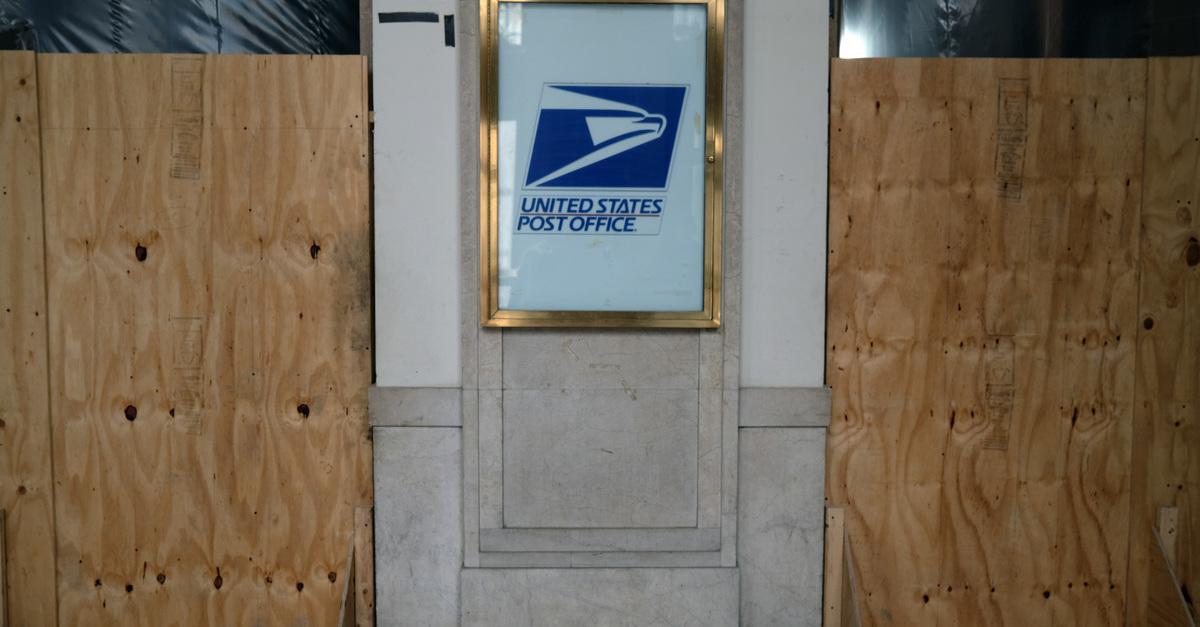
Yet another lawsuit was filed against U.S. Postmaster General Louis DeJoy and the U.S. Postal Service (USPS) over reductions and delays in service on Friday. The state plaintiffs in the latest legal battle contend that DeJoy’s recent changes have hamstrung the country’s ability to have free and fair elections.
Led by Pennsylvania Attorney General Josh Shapiro (D) and joined by California, Delaware, Maine, Massachusetts, North Carolina and the District of Columbia, the 68-page complaint was filed in the U.S. District Court for the Eastern District of Pennsylvania.
The lawsuit targets “several of USPS’s recent operational and policy changes, some implemented by USPS for the stated purpose of reducing the agency’s operating costs, but which have led to significant delays in mail delivery across the country.”
The filing details some of those recent budgetary efforts:
These changes—which include prohibiting late or extra trips by postal workers that are often necessary to keep the mail moving forward in the mailstream; requiring carriers to adhere rigidly to start and stop times regardless of whether all mail for their route has arrived or been delivered; and limiting the use of overtime—were made without due regard to their likely impact on mail service and in violation of the procedural requirements of the Postal Reorganization Act.
The plaintiffs allege such changes are “inconsistent with the Postal Service’s longstanding practice” of making sure every piece of mail keeps moving “toward its final destination” on a daily basis and that USPS employees must “deliver every piece of mail ready for delivery.”
Concerns about the novel Coronavirus (COVID-19) are also raised in the complaint–which notes that USPS employees have been particularly hard hit by the deadly contagion. Those infections, the lawsuit notes, have resulted in “[i]ncreased rates of absence” which make DeJoy’s directive to limit overtime “particularly ill-advised.”
The lawsuit explains the overarching USPS mission and philosophy in tandem with the necessity for employees to work overtime:
Because the Postal Service has long embraced a philosophy that every piece of mail goes out of the plant or delivery unit every day, regardless of conditions, overtime is necessary. If a tray of mail is not ready when the truck is scheduled to depart the processing plant, the truck would ordinarily wait. Likewise, if the processed mail has not arrived at the delivery unit when the carrier arrives for work, the carrier would ordinarily wait for the mail to arrive before departing on her route. If additional mail arrives while the carrier is out on her route or if that day’s mail was too much to carry in one trip, the carrier would ordinarily make a second trip to ensure every piece was delivered that day.
The heart of the matter, however, is all about voting by mail.
“What is more, USPS has implemented these unlawful policy changes just months before the November 3, 2020, general election,” the lawsuit continues. “In this election, far more Americans will cast their ballots by mail than have ever done so before.”
According to the filing, most of the state plaintiffs have documented massive upticks in the number of requested mail-in ballots for the 2020 general election. And those numbers, combined with the marked slowdown in mail services in recent months does not augur well for the state of American democracy, the plaintiffs claim.
“The service delays caused by Postal Service’s implementation of sweeping new policies in the midst of a pandemic may disenfranchise voters because their ballots will not be sent or received in time and may deter people from voting because they do not trust that their ballot will be delivered,” the lawsuit alleges.
The lawsuit also has a detailed breakdown of the impact that DeJoy’s recent restructuring efforts have made on the delivery of mail:
The functional result of these operational changes is that mail can be delayed at multiple places in the mailstream. If processed mail is not ready when the truck is scheduled to leave the processing plant, then that mail is left behind for the day. If the truck is delayed on its way to the delivery unit, then the carrier must leave on her route at her start time without that day’s mail. If the carrier is unable to deliver all of that day’s mail before her return time, then she must return to the delivery unit with that mail undelivered and any new mail uncollected. If the mail carrier did not depart with all of that day’s mail—for example, because it was too much to carry or because additional mail arrived after she left—then that carrier cannot make extra trips and that mail remains in the delivery unit overnight. And if the carrier returns to the delivery unit after the truck has returned to the plant, then any new mail collected that day remains at the delivery unit overnight and will not be sent to the plant until the following day.
The plaintiffs allege various violations of the Postal Reorganizational Act and the U.S. Constitution. They are seeking several injunctions that would, broadly, [v]acate the operational and policy changes adopted earlier this year.
“To the Trump Administration, delivering your paycheck, medication or ballot is a joke but there’s nothing funny about the wages you earn, your health, or right to vote,” California Attorney General Xavier Becerra said in a statement. “That’s why today we’re standing with Pennsylvania and other states, taking the Postmaster General to court.”
Read the full filing below:
Pennsylvania v DeJoy by Law&Crime on Scribd
[image via Spencer Platt/Getty Images]